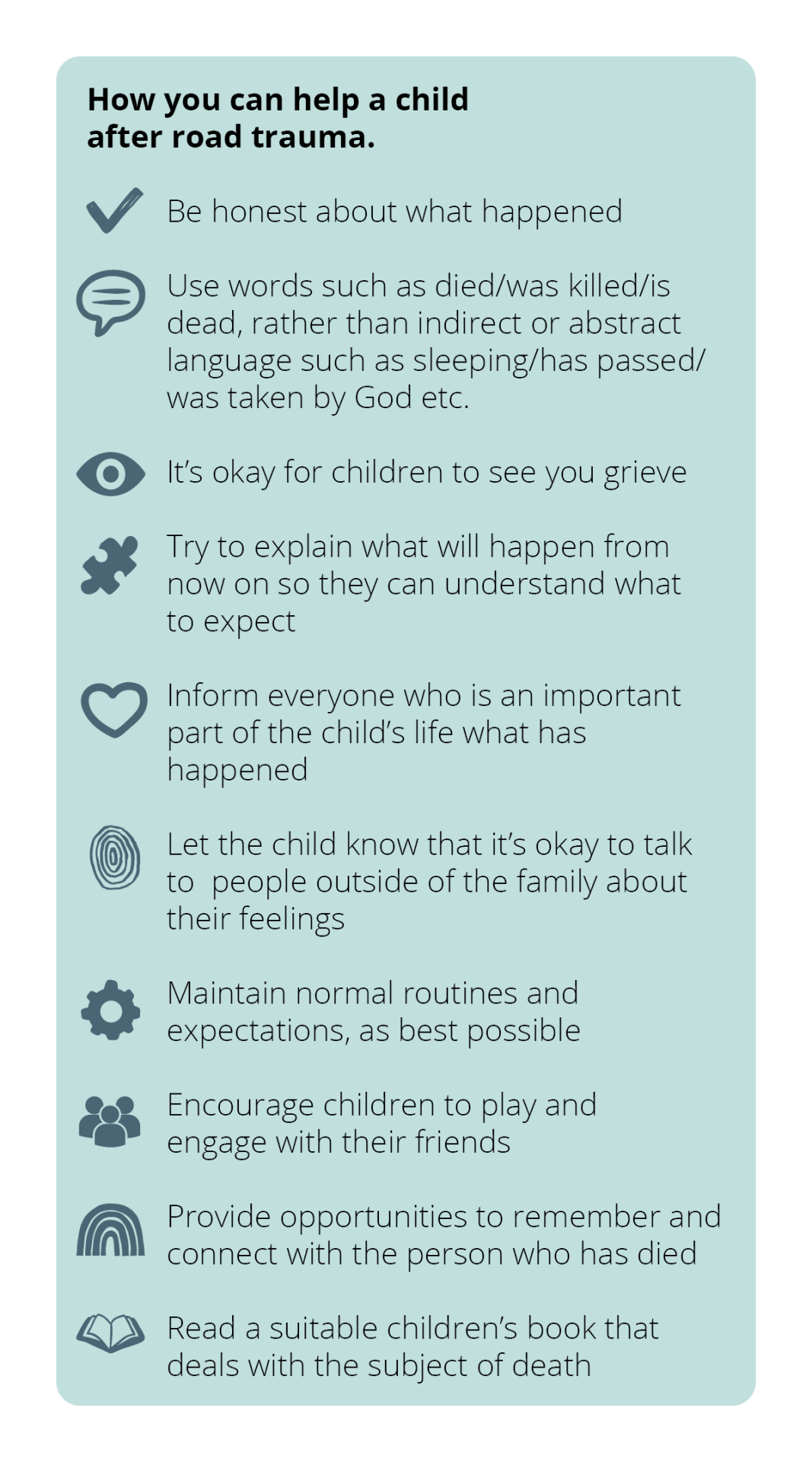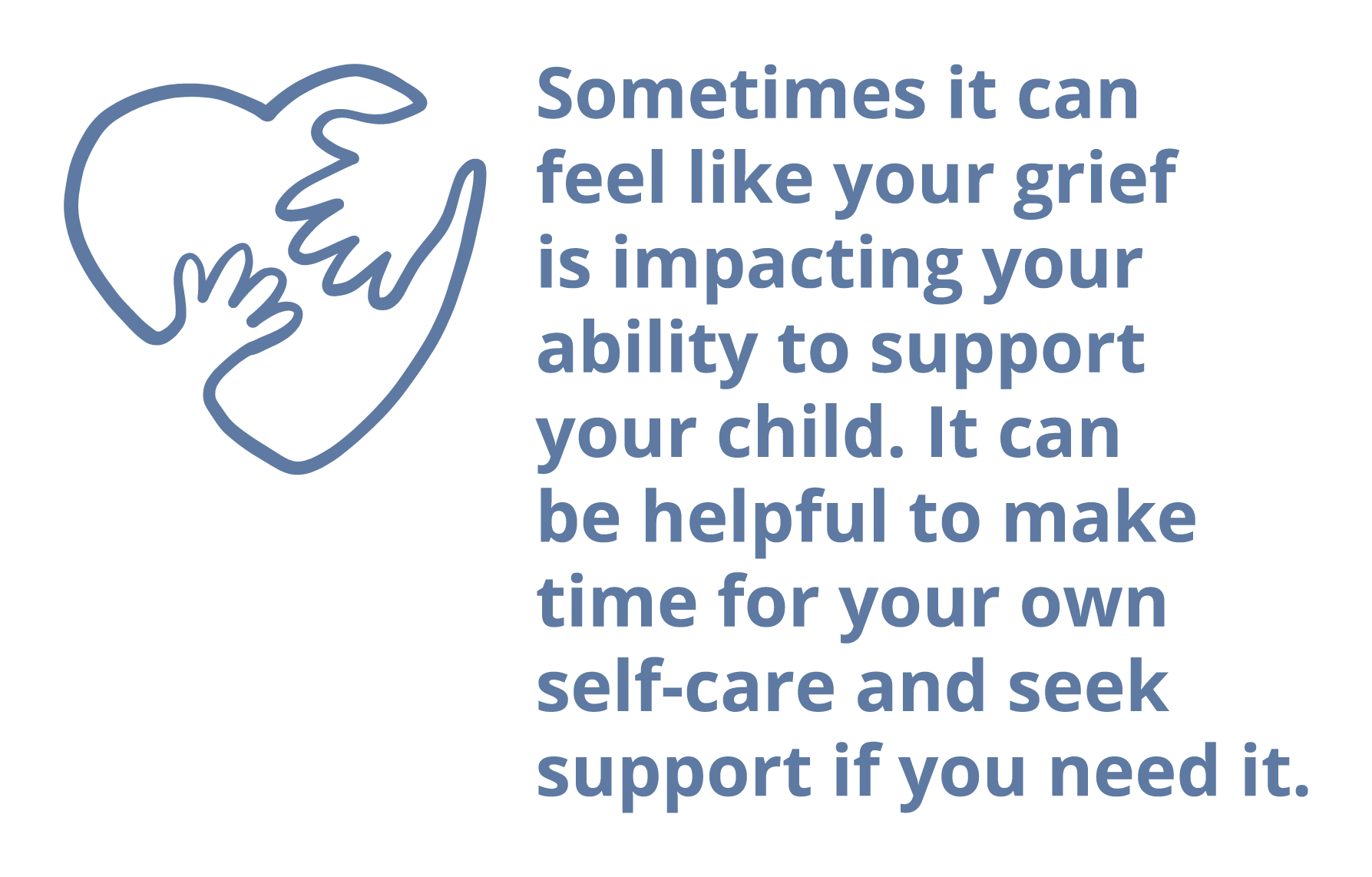Children have unique ways of understanding death and other traumatic events, depending on their age and level of maturity. Just like adults, they vary in their ability to cope with road trauma whether involved in a crash, being a witness to a crash or having lost someone they were close to. With sensitive and caring support from the adults in their lives, children can usually adjust well.
How children grieve

Children experience the same feelings as adults, but their grief may not be expressed the same way. For example: grief is not constant, it may come in bursts. Sometimes it may look like the child isn’t affected at all.
Feelings may be expressed through behaviours, physical symptoms and play or drawings. Changes in behaviour may include temper tantrums, becoming easily upset, clingy behaviours, acting like a younger child, not wanting to go to sleep in their bedroom, playing out the loss with toys or drawing scenes of death and trauma. Physical symptoms may include lack of appetite, poor concentration, nightmares and pains in the body (e.g. stomach aches or headaches).
Adult Grief Understanding
- everyone eventually dies (death is universal)
- death is final and permanent
- the body stops functioning after death (i.e. we can’t feel anything once we are dead)
Child Grief Understanding
Children don’t necessarily understand the concept of grief the same as adults. For example, a three-year-old may believe that the dead person will come back and won’t be as upset as an older child who understands that death is permanent. Depending on the child’s developmental level, they may wonder about things like ‘Does one death lead to another? Will I lose other people I love now? Am I in danger of dying? Did I do something bad/ wrong that caused the death? Where has the dead person gone? When will they return? Is it painful to be cremated?’ These are not questions that an adult would typically think about.
Children’s grief will be relevant to their age, and continue to evolve as they develop.

When to seek help
- Grief behaviours that become very repetitive or last more than a few months
- enduring physical symptoms
- self-harm or harming others
- Signs of depression – such as no longer caring about anything, no energy for any activities in their life, withdrawal or frequent crying.

Sources of help include your general practitioner, school psychologist or Road Trauma Support WA (RTSWA). Your GP can refer you to a local psychologist who specialises in grief/trauma. You can also contact RTSWA and make an appointment to see one of our counsellors, or just ask to speak to someone over the phone. If you are concerned about a child in your care, contact us.

Find out more about Road Trauma Support WA Counselling for children and youth


